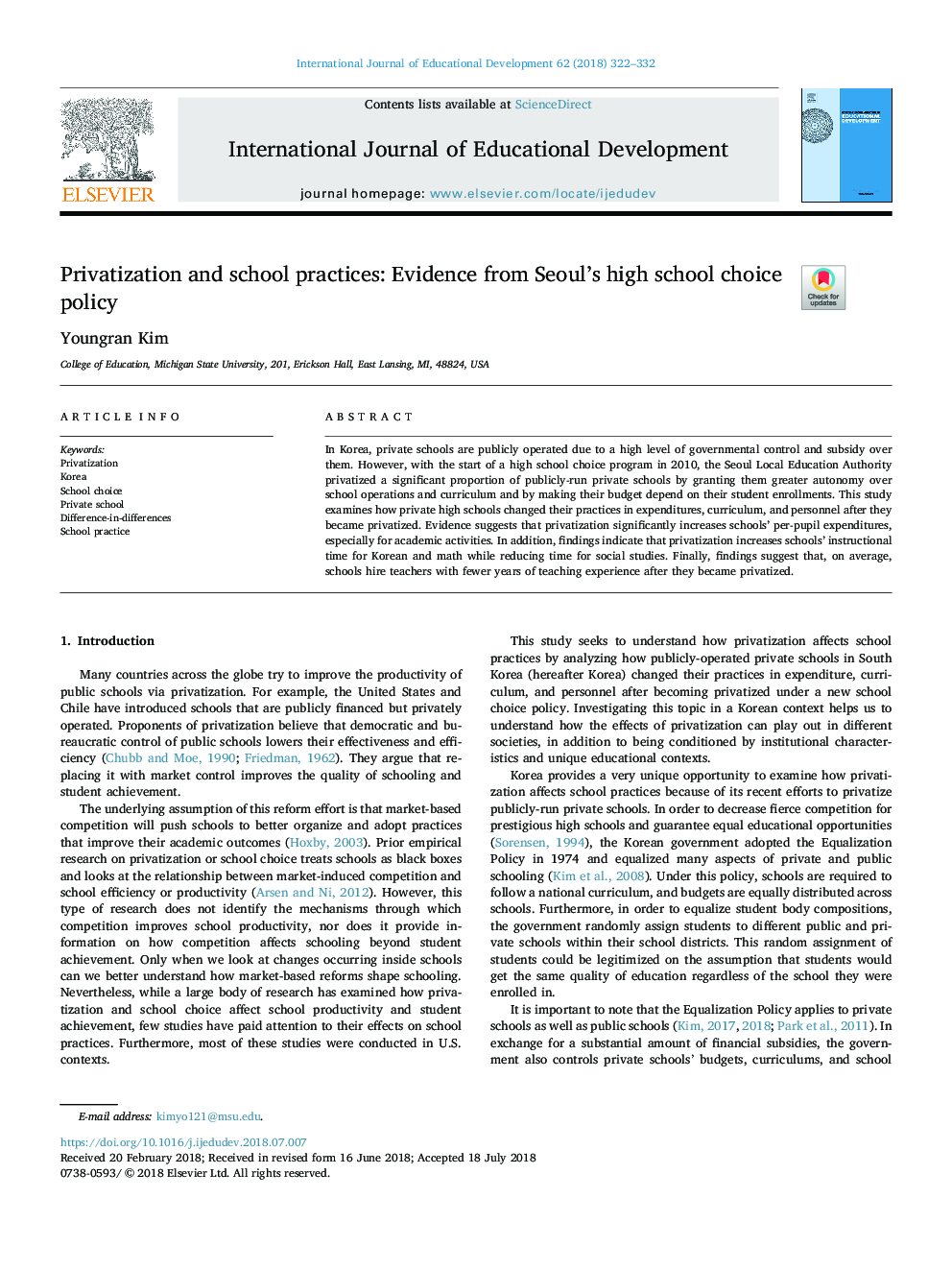| Article ID | Journal | Published Year | Pages | File Type |
|---|---|---|---|---|
| 6841098 | International Journal of Educational Development | 2018 | 11 Pages |
Abstract
In Korea, private schools are publicly operated due to a high level of governmental control and subsidy over them. However, with the start of a high school choice program in 2010, the Seoul Local Education Authority privatized a significant proportion of publicly-run private schools by granting them greater autonomy over school operations and curriculum and by making their budget depend on their student enrollments. This study examines how private high schools changed their practices in expenditures, curriculum, and personnel after they became privatized. Evidence suggests that privatization significantly increases schools' per-pupil expenditures, especially for academic activities. In addition, findings indicate that privatization increases schools' instructional time for Korean and math while reducing time for social studies. Finally, findings suggest that, on average, schools hire teachers with fewer years of teaching experience after they became privatized.
Related Topics
Social Sciences and Humanities
Social Sciences
Development
Authors
Youngran Kim,
